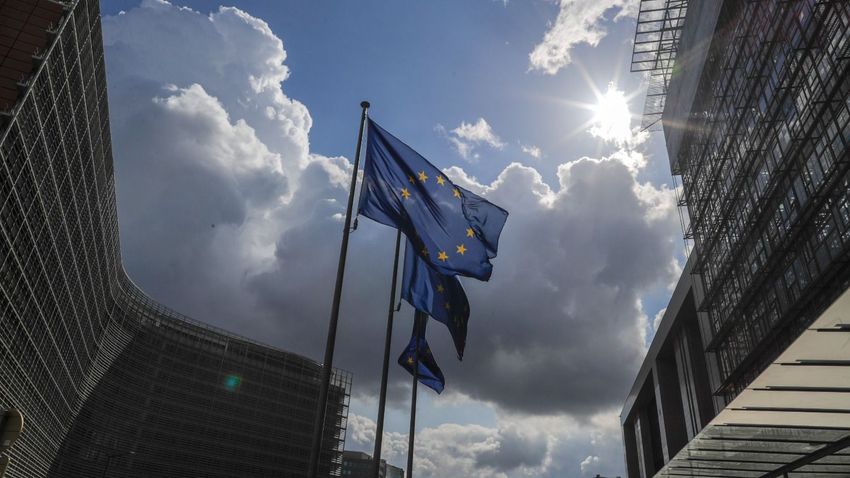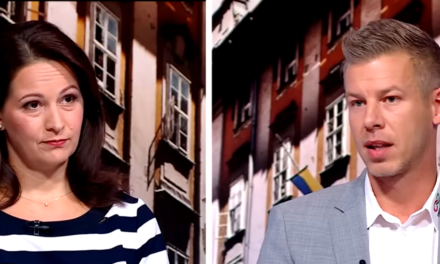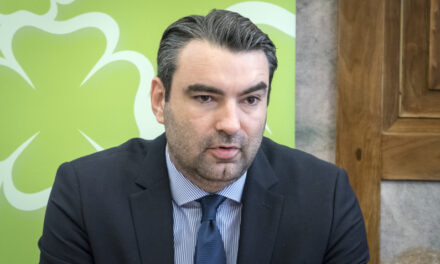Beneath the surface - one of the defining centers of global power is the Council on Foreign Relations.
We now know that the Action for Democracy foundation - which supported Péter Márki-Zay's Everyone's Hungary Movement with around two billion forints and, presumably indirectly, the campaign of left-wing parties - is also the head of the European Council on Foreign Relations (ECFR), Dávid Korányi. its member, as well as Gordon Bajnai, who is considered György Soros' right-hand man in Hungary; the latter has a decisive role in maintaining relations between globalist circles and the Hungarian left.
But what is ECFR? It is nothing more than a "subsidiary" of one of the most decisive globalist background institutions, the Council on Foreign Relations (CFR), if you like its branch outsourced to Europe. ECFR was founded in 2007 by Soros, who is also a member of the parent institution and was its director for a while.
Let's see specifically who the Hungarian members of the organization are according to their website. The following are in alphabetical order: Gordon Bajnai, who is not just a member, but also a member of ECFR's global advisory board and head of global infrastructure (whatever that means, but it sounds good). Tibor Dessewffy, the president of Demos Magyarország, is a sociologist who is also present at the DatAdat company. Klára Dobrev is a representative of the European Parliament and, by the way, the president of Gyurcsány's "shadow government", who, by the way, recently became a member of the organization. István Gyarmati, President and CEO, International Center for Democratic Transition. Dávid Korányi, who the website also says is the Atlantic Council's senior associate responsible for energy diplomacy, as well as UN DESA's energy policy advisor. Tamás Meszerics, who, according to the website, is a lecturer at the Central European University. Anita Orbán, Deputy CEO of Vodafone Hungary. Alexander Soros, vice president of the Open Society Foundations. George Soros, founder and chairman of the Open Society Foundations. Réka Szemerkényi, Senior Advisor, Transatlantic Strategy, International Republican Institute.
It is not controversial, the list also includes a right-wing personality. But
the dominant majority is clearly a globalist, liberal figure who is completely connected to liberal, globalist organizations and networks.
After this, we should not be surprised that several members of the parent institution, the CFR, are among the leading board and advisors of the Action for Democracy foundation. On Index.hu, András Schiffer developed this network of connections in detail. It turned out that Kati Marton, who heads the advisory board, is a member of the CFR, but her deceased husband, Richard Holbrooke, former Deputy Secretary of State for Foreign Affairs and UN Ambassador, was also a member of the CFR (the latter, by the way - among many other globalist connections - also participated in the Bilderberg Group ). Anne Applebaum, an American activist who hates Orbán, is also a member of the CFR, while Timothy Garton Ash, the very well-known British historian, is "only" a member of the ECFR, and Péter Márki-Zay met him during his trip to London. at the Institute of Foreign Affairs (which can also be called the English sister institution of the CFR). The next person is the famous-notorious philosopher-political scientist Francis Fukuyama - who formulated the "end of history" thesis - he is also a member of the CFR and even a board member.
Charles Gati, also a well-known Orbán-hating political scientist, is also a "consultant" of Action for Democracy and a member of the CFR (as is his wife, Toby Gati).
Evelyn Farkas, who was deputy secretary of state in the Obama administration, is also a CFR member, as well as former British foreign minister David Miliband, CFR speaker, CFR member Timothy Snyder, and Warsaw mayor Rafal Trzaskowski, who is a member of the ECFR.
In short, quite large forces have mobilized in the world to bring down the Orbán government. The Council of Foreign Relations is not just any organization with a past. Headquartered at 68 Park Avenue in New York City, the CFR is one of, if not the, most powerful, resourced and networked global governing body.
The Council of Foreign Relations was founded in 1921 (its partner institution is the Royal Institute of Foreign Affairs in London, which was founded in 1920), in the first period it was managed by the Rothschild banking house (or its American representative, JP Morgan), but later the Rockefeller family took control of the council . If we only take natural persons, it is enough to say that almost every American president after the Second World War, and most of the American secretaries of state and defense have been members - Democrats and Republicans alike. Currently, leading politicians, government people, media, education, science prominent figures, civil society managers, etc. members of the board.
But briefly about the real influence of the CFR. It should be known that after the Second World War, the CFR designed the operational framework of the UN and the Marshall Plan, which started the rise of Western Europe in the direction of the welfare state. Some members of the council still hold key positions in American governments. The journal Foreign Affairs published by the organization is the strategic shaper of American foreign policy, and according to The Washington Post, it is "the bible of foreign policy thinking".
If we go back to the early days, it is worth pointing out that after the First World War, around 1920-1921, the United States - as the absolute winner - could have assumed the global leadership role, but the war-weary America and its president at the time, the Republican Warren G. Harding. However, the American banking families, who were already making big plans for global control, could not accept this. That is why the CFR was founded in New York, on a bipartisan (!) basis. The great banking dynasties, such as Rothschild, Morgan, Rockefeller, had plenty of money to influence American and, through it, world politics through their people.
At the time, Walter Lippmann, an influential American journalist and consultant, emphasized the superiority of the United States and wrote that an elite group should give advice to decision-makers and develop the "art of persuasion", thereby achieving a "unified public opinion". Lippmann was a member of the Fabian Society, which advocated eugenics, the extraction of "good genes". The unified public opinion - if we look more closely - has taken off quite nicely in the Western world since then...
It is also important to highlight the comment of one of the members of the Warburg banking dynasty, James Warburg, who was also a pillar member of the CFR:
It will be a world government, whether you like it or not. The only question is whether we will achieve the world government by conquest or by the consent of the people.
If we take a closer look, we see that they are considering both possibilities...
The CFR has run a successful course until today: the II. They also determined American foreign policy during World War II. The principles of the UN, the World Bank, and the International Monetary Fund (our favorite) were also developed based on the advice of the CFR. After the war, their influence extended to Europe and East Asia, so from here on they planned and acted on a truly global scale.
But let's stop here, because that's enough for now. The CFR's influence is even more comprehensive than this, but more on that later.
The author is a political scientist and a research consultant at the Center for Fundamental Rights
Source: Hungarian Nation
Cover image: Photo: EPA/Oliver Hoslet













